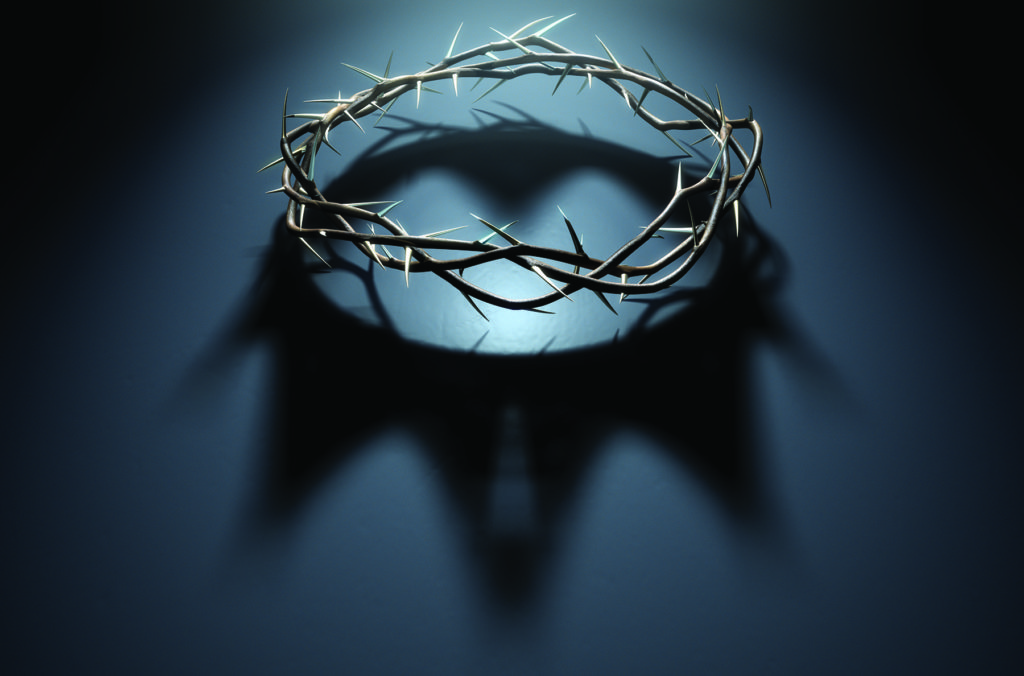
Mar 20, 2019
By Pastor Bob Babcock
A few days ago someone posted a note on Facebook that said the words “Jesus paid it all” do not appear in the Bible. I commented, even if those exact words were not there, that very message is clearly there and seen throughout the whole New Testament. Thinking about it later, I realized I should have said that the message not only is reaffirmed many times throughout the New Testament, it is confirmed in the Old Testament as well. Probably the clearest prophecy about Jesus is the entire 53rd chapter of Isaiah. Isaiah 53:3-7 is especially unmistakable: “He was despised and rejected by men, a man of sorrows, and familiar with suffering. Like one from whom men hide their faces he was despised, and we esteemed him not. Surely he took up our infirmities and carried our sorrows, yet we considered him stricken by God, smitten by him, and afflicted. But he was pierced for our transgressions, he was crushed for our iniquities; the punishment that brought us peace was upon him, and by his wounds, we are healed. We all, like sheep, have gone astray, each of us has turned to his own way, and the LORD has laid on him the iniquity of us all. He was oppressed and afflicted, yet he did not open his mouth; he was led like a lamb to the slaughter, and as a sheep before her shearers is silent, so he did not open his mouth.”
I am sure that there is no question in our minds that “all have sinned and come short of the Glory of God,” that there is “none righteousness among us, no not one.” It must be equally clear that we all deserve death as payment for our sin, but our loving God was not willing that any should perish. “He so loved the world that He gave His only begotten Son, that whosoever believeth in Him should not perish but have everlasting Life.”
Tetelestai! The shout of victory Christ uttered as He died on the cross is usually translated, “It is finished!” But it had another meaning. It was an accounting term. When a bill was paid, it was commonly marked with the word “Tetelestai,” meaning “Paid in Full.” And that is precisely what the death of Christ accomplished. “[He] bore our sins in His own body on the tree,” says Peter (I Peter 2:24). “He Himself is the propitiation [the full satisfaction of God’s justice] for our sins, and not for ours only but also for the whole world,” (I John 2:2). The groaning weight of all the world’s sin was laid on Christ at Calvary. He bore it in our place. In Hebrews 10:14 Paul puts it this way, “For by a single offering he has perfected for all time those who are being sanctified.” See it is true: “Jesus paid it all.” Jesus has died, and He has died for us all. The stain of sin that marred our lives has now been washed white as snow. He has paid our debts. All of them! All that is left for us to do is to believe and accept His payment for our sins.
The message of our celebration at this time of year is that Jesus did not just die for our sins, but He also rose from the grave. He “was declared to be the Son of God in power according to the Spirit of holiness by his resurrection from the dead.” In that way, the resurrection proves who Jesus is and demonstrates that He reigns in power. Jesus “was delivered up for our trespasses and raised for our justification” (Romans 4:25). By raising Christ from the dead, God the Father was in effect saying that He approved of Christ’s work of suffering and dying for our sins, that His work was completed, and that Christ no longer had any need to remain dead. There was no penalty left to pay for sin, no more wrath of God to bear, no more guilt of liability to punishment—all had been completely paid for, and no guilt remained.”
When Jesus rose from the grave, He rose as “the firstfruits of those who have fallen asleep” (1 Corinthians 15:20). That means that His resurrection ensures ours.
Praise the one who paid our debt and raised our lives up from the dead!
We look forward to that day when we will stand before His throne, repeating our joy in the knowledge that Jesus paid it all, all to Him I owe. Sin had left a crimson stain, but His blood has washed it white as snow.


